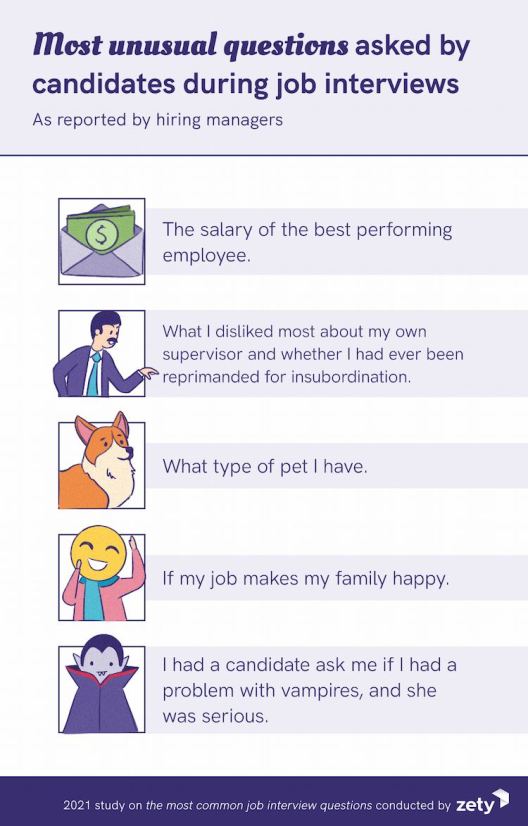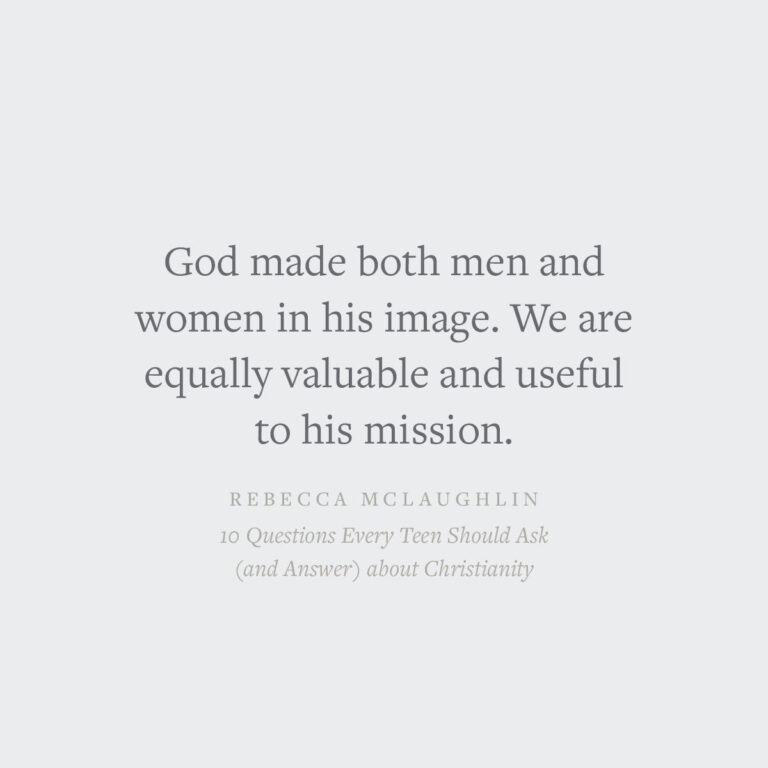
Top 10 Interview Questions and Answers

Source: novoresume.com
Landing a job feels like winning a big game. But you need the right game plan. This guide shows you the top 10 questions often asked in job interviews. Knowing how to answer these will help you shine.
Tell Me About Yourself
This is a common opener. Give a short story of your past work. Show how your skills match the job. This is your chance to introduce yourself and impress! Think fast but be honest about who you are.
Why Are You Interested in This Position?
Companies want to hire the right person. You need to explain why this role suits you and the company. Mentioning specific aspects, like the company's values, or products will show how your work is useful. You have to want this position as much as they want you!
What Are Your Strengths?
Mention talents or skills that are really useful in work. Examples are good communication, strong teamwork skills, creative thinking. Honesty helps a lot! Explain briefly how these strengths benefit a job, that is, why the qualities help the company's needs.
What Are Your Weaknesses?
Everybody has some issues. Pick one weak point you’re improving. This shows that you can keep learning, adapt to challenges and stay a go-getter. Honesty and transparency can also be positive factors here. Do not list many of them or say anything negative about yourself to an exaggerated extent. Focus on improvement.
Why Should We Hire You?
Show your talents. Companies want people who bring useful things to their teams! Briefly describe why you’re great. Explain why your unique qualities could solve work problems. Make sure it aligns with what the role calls for.
What are Your Salary Expectations?
Research average pay rates for the same job, this is how you plan your desired income! Knowing your market value is very important, especially in a salary negotiation. Keep your expectations fair but state firmly how much you think is appropriate. Always prepare answers!
Do You Have Any Questions for Me?
Asking good questions reveals your seriousness. Find something out about the work environment or goals of the company, their team values. Be curious; this is not about finding out personal data, just learning! A positive attitude shows a real interest in a future job in this company! Questions about opportunities show your engagement with company goals.
Tell Me About a Time You Failed
Remember a challenge at a previous job or assignment where things went wrong? Briefly explain this, and say what you learned. A lot of mistakes provide valuable insights. Showing your ability to bounce back and learn will shine, this shows you are responsible for any mishap, you will face the trouble ahead as well.
Tell Me About a Time You Succeeded

Source: novoresume.com
Talk about a project or something you excelled at! This should not focus on self-praising and must involve successful collaborations. Tell how you succeeded and what methods were employed. Show the impact this work had on the job, work groups, or the whole team, and the company's overall interests. This builds your trust value and strength for the job!
Are You Willing to Work Overtime?
Be honest about your work style! If overtime is essential to some positions, show your eagerness to meet company targets! Be thoughtful, consider your commitments, but let them know if you can possibly put in more hours sometimes. Mention your capacity and understanding for the team or the whole working culture. This shows responsibility.
These 10 questions frequently appear during interviews. Answering them thoroughly and honestly can lead to a job offer. Preparation is key! By being confident and enthusiastic, you can increase your chance of landing a role that you love.
5 Key Strategies to Ace Your Next Interview

Source: slideplayer.com
Getting ready for an interview isn't just about knowing the questions. It's about showing you're the best person for the job. These 5 key strategies can help you win the job interview battle!
1. Research the Company and Role
Understanding the company is a must. Find out about their goals, mission, and current projects. Learn about their work environment. Showing that you are interested will show why this specific job interests you, how your skills fit in and how these aspects impact your decisions. This can help tailor your responses.
2. Practice Your Answers
Practice your answers for the common interview questions like "Tell me about yourself." Rehearsing answers aloud can make you feel more prepared. It makes sure your responses sound clear, engaging and polished, avoiding hesitation.
3. Dress Professionally

Source: workable.com
Your look matters! Dressing the part can help you look good and show seriousness for the role. Make sure clothes are clean and ironed and fit your needs perfectly, in line with office norms. You want the right look and right mindset in line with this. Showing this in a clear way can build rapport and show commitment.
4. Prepare Thoughtful Questions
Asking great questions demonstrates genuine interest. This isn't just showing you care, it also helps you learn more about the company, work roles, the position, and their goals, so you can also demonstrate you have a good understanding of the roles, goals and needs for this particular company.
5. Follow Up After the Interview
This is a crucial step. Sending a thank-you note shortly after shows your continued interest. This confirms your positive attitude, sincerity and makes a great positive impression. Thank them for the time they gave you, for an important conversation, and remember the job interview will make a stronger memory. If they don't follow up after a month, there are likely other reasons.
By following these steps you have all it takes! Being prepared gives you the chance to build a good first impression, engage genuinely, highlight what makes you special and give the right feel to show you are interested in working here. With this comprehensive strategy, your chance to get the job is significantly increased!
7 Reasons Why Interview Preparation Is Crucial
Interview preparation is key to success. It helps you feel confident and ready for the challenges of getting the job.
1. Increased Confidence
Preparation builds self-assurance. Knowing your answers and how to present yourself will help you feel confident and at ease during the interview. This self-belief translates to a positive demeanor and smooth interactions with potential employers. This will be a real advantage.
2. Reduced Anxiety
Preparation reduces stress and nervousness. Being prepared makes the interview seem less intimidating, making it much easier to respond well under pressure. This eases anxiety and enables clear expression of relevant details about your career and expertise!
3. Improved Performance
Preparing responses strengthens performance. You can use interview practices, questions and answers, this allows for better performance. Thorough preparation ensures that you convey your abilities and talents correctly, making you sound more persuasive!
4. Better Articulation of Skills
Practice enhances your ability to communicate. When you rehearse responses to typical interview questions, you develop clear articulation and showcase skills effectively. You have clear expressions, concise words and a structured response showing talent for the role and job!
5. Enhanced First Impression

Source: statterrecruitment.com
A strong first impression builds good communication. Preparation allows you to convey confidence, seriousness and eagerness! This sets a positive tone and opens doors for the interviewer to see what qualities you can bring to their company. A positive, prepared posture demonstrates professionalism!
6. Demonstration of Interest
Preparation shows a strong interest. Thorough preparation means that you understand what each specific employer and role needs. Research and preparation show the potential employer your desire to do well in the specific role! This shows you truly want the job!
7. Higher Chance of Success
Preparing leads to increased chances of getting a job offer. Understanding the interview format, being knowledgeable about the organization, and being well-practiced, and expressing an enthusiasm are clear indications that this is a high value, potential employee who is well-qualified. This combination increases the chances for your successful application!
These seven crucial reasons highlight the significance of interview preparation. Thorough planning will give you significant confidence, reducing stress and building successful rapport. This combination sets you apart from other applicants. Preparation makes you ready, well-informed and able to make a strong lasting first impression with a potential employer. It all leads to increased chances of success.

Source: ctfassets.net
Mastering the "Tell Me About Yourself" Question
The "Tell Me About Yourself" question is a common starting point in many job interviews. It's your chance to make a good first impression and show why you're right for the role.
Crafting a Compelling Story
This question isn't about a complete life history. It's about showcasing relevant parts of your background. Focus on the experience and skills most important for the job you're interviewing for. Think of your experience as a story with a clear beginning, middle, and end. The focus should always be on the role and company, making your details highlight why you're good for them.
Key Elements to Include
Briefly summarize your key work experiences. Connect your past work experiences, skills and talents directly to what this specific role and company needs. Show how you’ve gained valuable knowledge and how your efforts benefit companies or people, highlight this success. Showing enthusiasm for the opportunity is important, demonstrate genuine excitement!
Tailor Your Response to the Role
This answer needs to be adapted to each job interview you have! Look carefully at the job description and match what is written. Consider the role's needs and responsibilities and link them to your skills and work experience. Focus on your relevant achievements, as these will demonstrate a solid comprehension of the specific position!
Emphasize Your Skills and Accomplishments
Focus on how your skills and past achievements helped the company you worked with, or made things easier and smoother for previous coworkers. Share situations where your skills positively impacted others or projects. Share clear and direct ways your skills and knowledge directly contribute.
Project Confidence and Enthusiasm
Conclude with expressing eagerness and enthusiasm for the role. Project passion and interest in the work, this confirms your strong willingness to commit to success! This approach reveals a serious desire for the job, and a clear understanding of your role and capabilities, with confidence! This is often the key element that many job candidates overlook. End strongly.
By skillfully responding to this critical interview question, you show employers the significant qualities they seek. Thorough planning shows a focused passion for the job, creating a lasting positive impression. Emphasize skills and previous achievements that highlight qualities important to success for this role. This concise overview demonstrates that you understand the position, have enthusiasm and are the right fit for the company and its specific role, clearly!
Navigating the "What Are Your Weaknesses?" Question
This tricky interview question tests your self-awareness. It's not about admitting flaws; it's about showing how you learn and grow.
Understanding the Intent
Interviewers want to see if you recognize areas needing improvement. They want to know if you're honest and self-aware, showing how you work to improve weaknesses and overcome hurdles, so they see potential to contribute more. It's a way to understand how you manage problems and whether your approach fits their organization's goals and work process.
Choosing a Suitable Weakness
Pick a weakness unrelated to core job duties. This might be something like public speaking or a hard technical issue you encountered and learned to master in a previous job. A minor weakness shows resilience to trouble! Don't pick a weakness deeply related to the core job tasks, such as core abilities needed for that role! This could give a poor impression. Focus on things you are trying to improve; this attitude speaks to proactive qualities and is always attractive in any workplace setting!
Framing Your Weakness Positively
Don't just list the weakness. Explain how you're working to overcome it, like you were focusing your attention to practice something hard! Explain any steps or specific learning experiences that have improved this area or help you learn skills faster, such as short courses, extra reading, etc. Frame the weakness as a point that you're diligently addressing through continued education or personal experiences!
Providing a Clear Plan for Improvement
Detail specific actions or activities you're taking. Explain the efforts you’re currently undertaking and your proactive attempts to overcome that area; this may include studying, seeking advice or joining communities focused on skill building and problem-solving in that field! This positive outlook shows a true understanding of how to improve work output, performance and your contribution, important and valuable qualities in any working environment!
Maintaining Honesty and Transparency
Be honest about your chosen weakness. Being true and transparent makes the employer see and appreciate the fact you admit flaws in an organized and prepared manner. Avoid over-dramatization or generalizations! Showing genuine effort to understand the situation and look forward in a structured and measured way to a possible solution builds an encouraging impression for employers. This shows initiative.
By skillfully answering this question, you show employers your awareness and dedication. This shows commitment and readiness to address issues constructively in a real, authentic and professional manner in any work environment, setting you apart as a thoughtful candidate! It proves an eagerness and preparedness in resolving work related hurdles, which helps improve your job chances!
Final Thoughts: Your Interview Success Toolkit
This guide offers key insights to ace job interviews. Remember, thorough preparation significantly boosts your chances of getting a job.
Key Takeaways
Effective preparation builds confidence, eases anxiety, and highlights skills. Mastering interview questions directly enhances your chances of a positive outcome, ultimately leading to successful hiring by potential employers. It will also show them that you have strong abilities, passion and can potentially fit the role really well.
Essential Steps to Success
Researching the company and job role is critical. Thoroughly practicing answers helps demonstrate genuine interest and prepares for different questions effectively. This includes carefully considering company culture to determine whether the overall tone will match your expectations for job happiness. Ensuring professional attire enhances the positive impression and reflects appropriate respect, professionalism and awareness. Preparing thoughtful questions conveys engagement and a thoughtful mind towards work expectations, needs, goals and overall workplace contributions. Follow-up communication, especially a well-timed thank-you note, leaves a strong impression on the interviewer, confirming continued enthusiasm and appreciation.
Beyond the Basics
Preparation extends beyond knowing common questions. It also involves self-reflection, recognizing your strengths and understanding the company's culture; being equipped and understanding company culture and values adds a more holistic understanding of work ethic to potential employers and their organization. Tailor your answers to reflect the specific requirements of each job role; matching these with the work culture and company expectations is important for highlighting suitability and creating stronger, effective communication to improve your chances.
Cultivating a Strong Interview Strategy

Source: medium.com
Building a successful strategy, preparing responses, presenting positive qualities and projecting the right mindset makes a huge difference. This combined approach will also show recruiters or employers that you understand their organization, its functions and ways of doing business. Be confident; maintain strong body language and keep eye contact during the entire interview period!
Embark on a Successful Path
A well-structured and thoughtful interview journey depends a lot on knowing how to properly manage stress in those situations! This journey is crucial to building and showing positive engagement with the whole process, not just in a specific way for answers. Thorough understanding, well thought out replies and a confident body posture during the whole experience helps you land the job more easily. Interview success hinges on these preparation tactics. Embrace this guide and step into a positive future!



